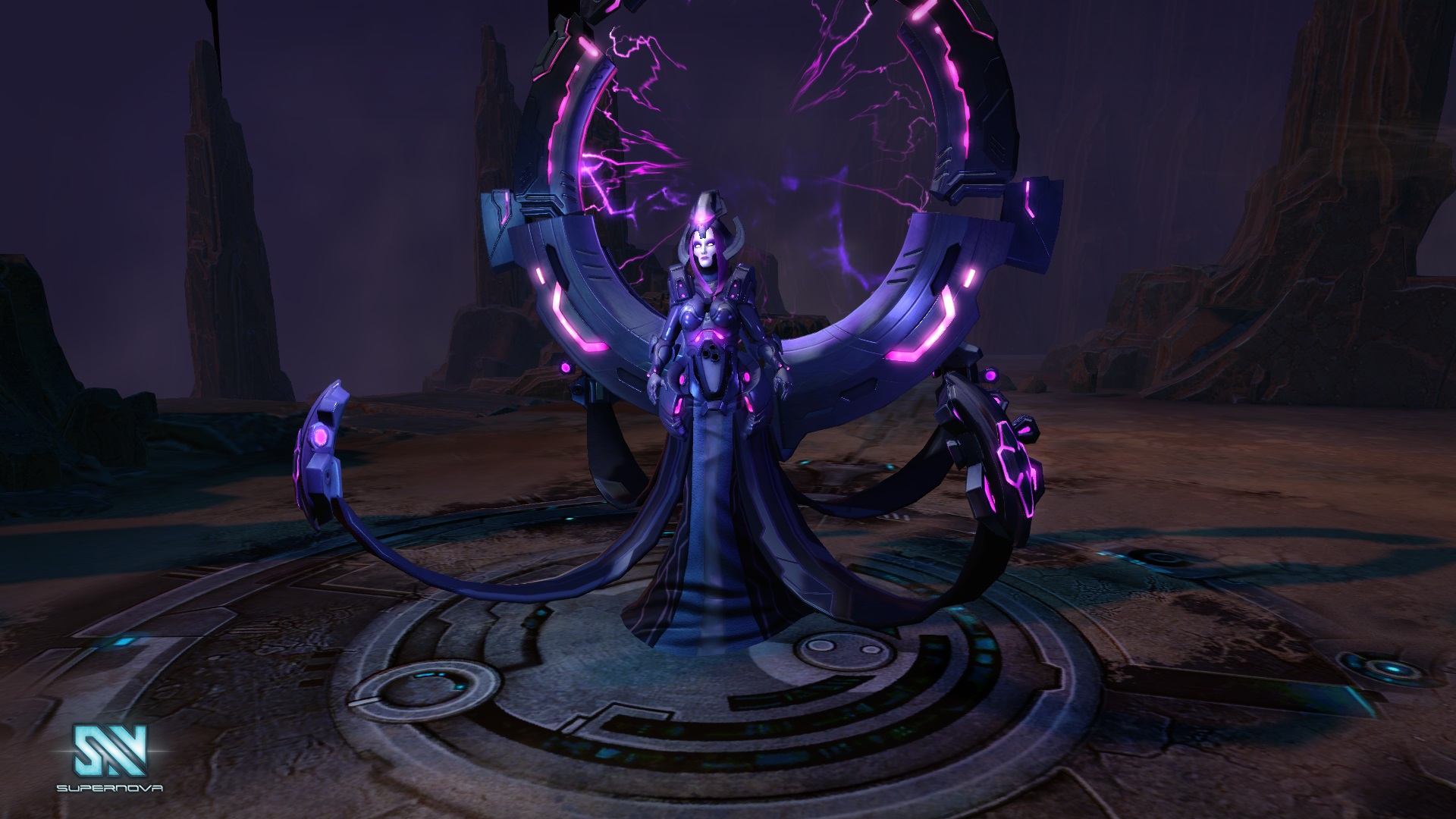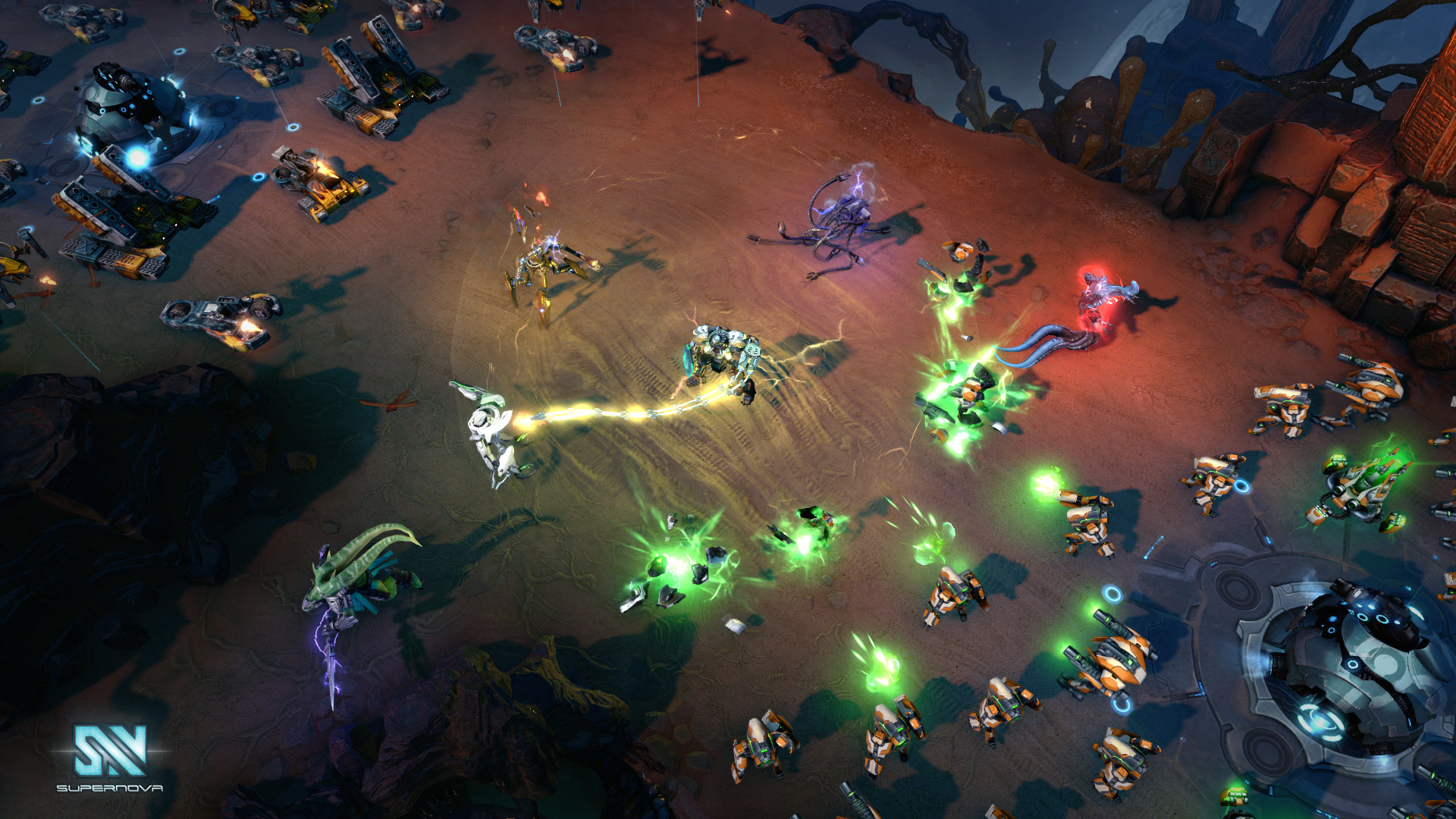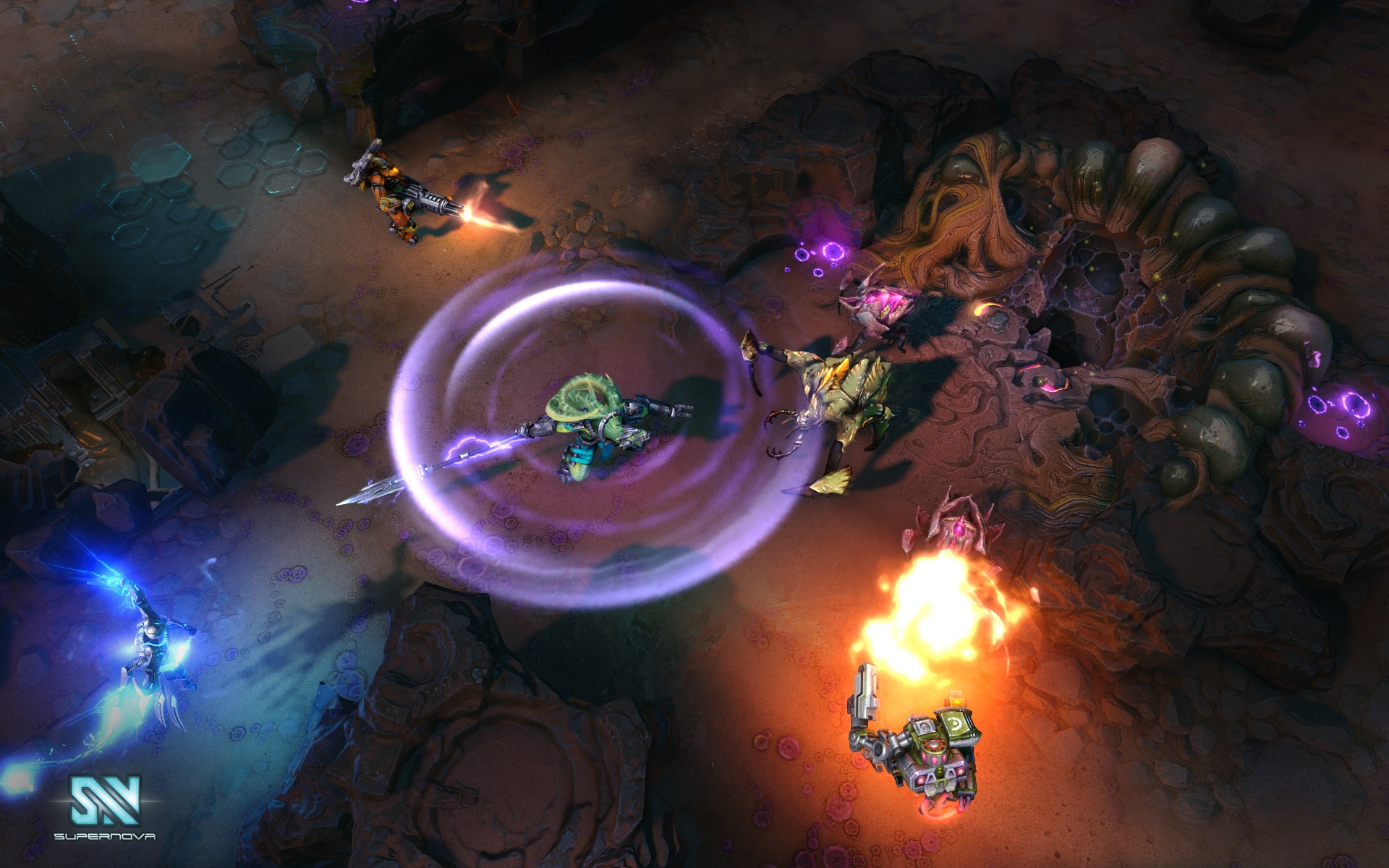Meet the MOBA bringing the genre back to its RTS roots

Supernova is a super complex game. Which is understandable, because combining the strategic depth of the real-time strategy and MOBA genres is bound to complicate things. When I asked Cory Maggard, an assistant producer on Supernova, whether it’s a real-time strategy game with MOBA elements or the other way around, he laughed. "It's definitely a MOBA," he said. But when I was staring at the layers of choice found in the pre-match menu, I honestly wasn't sure.
In the wake of The International 5, the world's largest esports tournament, it can be easy to forget that the MOBA genre grew entirely from a Warcraft 3 mod. While real-time strategy games and MOBAs continue to diverge along their evolutionary paths, Supernova, a free-to-play game developed by Primal Game Studios, aims to reunite the two. The time I spent playing it at PAX, with Maggard leaning over my shoulder answering my barrage of questions, was certainly an overwhelming experience, but it also an intriguing one.
There's a staggering amount of depth in terms of how you can approach the game. All of the foundational MOBA elements are here: you'll fight across a three lane map in competitive 5v5 matches, waves of monsters spawn periodically and march across the map in an infinite cycle of destruction, and between their paths exists a jungle to set up ambushes and reap various benefits. It is to Supernova's benefit that so much of its foundation is familiar, because what it builds on top begins to boggle the mind.

The biggest difference is that, unlike traditional MOBAs like Dota 2 or League of Legends, Supernova gives you full control over the composition of the waves of soldiers that flow from your base and march across the map. As in real-time strategy games, these units have very specific methods of attack which, when matched against certain enemy types, can make them very effective.
But where Supernova begins to overwhelm is with how much there is to manage and the number of to make—many before you even begin a match. There are two different sci-fi factions to populate your army from, each with its own strengths.
Every time I felt like I began to grasp one mechanic, a new one was pointed out that I was neglecting.
You also have to manage the growth and progression of your own hero, whose skillset can be augmented with a secondary set of abilities known as Tacticals. And you need to manage the composition and growth of the units in your lane. Like a good old fashion real-time strategy game, you earn resources which can be spent on different units, of which there are ten you can bring into a match. What’s more, each specific type of unit can also be augmented before a match with Wartechs—simple alterations to various attributes. During a game, a research tree is available that can significantly alter how your army functions. Beetle-like robots, for example, could be given wings and made airborne, which might suddenly act as a hard counter to your opponent's setup. Thankfully, Supernova provides various windows that you can access that help parse all this information. Making decisions doesn't always have to require drawing from a huge pool of technical knowhow.
That said, I seriously worry that Supernova will be toppled by the weight of its own complexity. Though entire features like character progression and unit compositions can be automated, a process which would certainly fail to keep pace against a skilled opponent, even trying to comprehend the plethora of systems available was a major challenge. Every time I felt like I began to grasp one mechanic, a new one was pointed out that I was neglecting. And that’s without mentioning the whole aspect of character progression that I left automated the entire time I played. I mean, the brain can only absorb so much info.
The biggest gaming news, reviews and hardware deals
Keep up to date with the most important stories and the best deals, as picked by the PC Gamer team.

It’s worth noting that I was playing on an account that had everything unlocked. Like League of Legends, there is an overarching progression that will start players off with only a small set of choices, with more options becoming available as you accrue experience and in-game currency. Being free-to-play, you can also expect Supernova to adhere to a financial model similar to League of Legends where everything impacting gameplay can be earned through playing, but tossing down dollars will speed the process along considerably or give you access to cosmetic skins.
MOBAs have almost miraculously managed to become dominant despite the overwhelming complexity at the heart of many of them, but I can't help worry Supernova might be pushing it a little too far in the hope of distinguishing itself from the crowd. There's no doubt that it's an interesting game, though. Everything I saw was, for a closed beta, extremely polished. The sci-fi art style is extremely pleasing, especially when a wave of creeps arrive to barrage a tower with gloriously bright laser fire, and the audio is excellent.
I have no doubt that Supernova will find a niche audience hungry for the extra layer of strategic depth. But in a genre where only a few games command the loyalty of the many—and we're already seeing some contenders throw in the towel—that might not be enough. MOBAs tend to exist in a space where they require a basic language that can be understood by a wider, often less initiated audiences, and while I enjoyed my time with Supernova, much of what it spoke to me felt alien.
You can find all of our coverage from PAX Prime 2015 right here.
With over 7 years of experience with in-depth feature reporting, Steven's mission is to chronicle the fascinating ways that games intersect our lives. Whether it's colossal in-game wars in an MMO, or long-haul truckers who turn to games to protect them from the loneliness of the open road, Steven tries to unearth PC gaming's greatest untold stories. His love of PC gaming started extremely early. Without money to spend, he spent an entire day watching the progress bar on a 25mb download of the Heroes of Might and Magic 2 demo that he then played for at least a hundred hours. It was a good demo.


